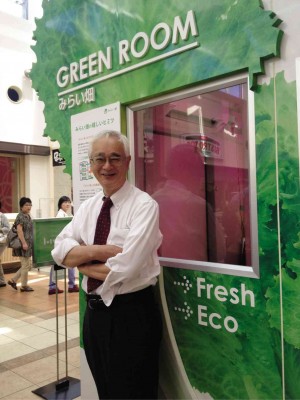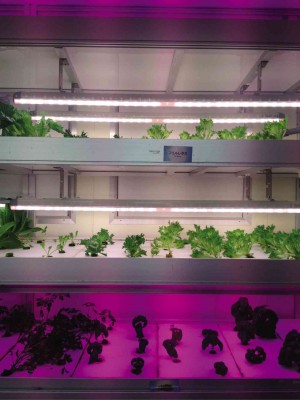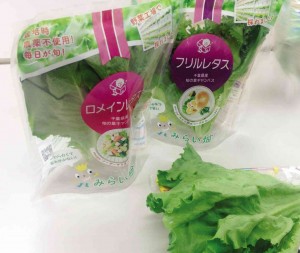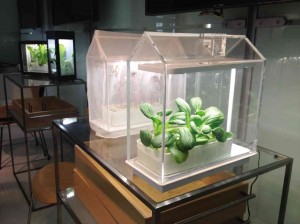Japan’s help sought to perk up coffee, cacao sectors
KASHIWA CITY, Japan—It will take millions of seedlings to revive the Philippine coffee and cacao industries, and the Philippine Coffee Board is not leaving something of this scale to chance.
PCB co-chair Pacita Juan is thus initiating a partnership between Dr. Toyoki Kozai, professor emeritus and former president of Japan’s Chiba University who developed the so-called plant factory with artificial light (PFAL) technology, and the Cavite State University, which houses the Philippines’ National Coffee Research Center, to improve the output of these key sectors.
At Chiba University’s Center for Environment, Health, and Field Sciences in Kashiwa City, Chiba Prefecture, Kozai told a study mission organized by the Tokyo-based Asian Productivity Organization (APO) that plant factory technology using rack-like tiers is being used to grow leafy vegetables such as lettuce under controlled conditions (temperature, light, air, water, liquid nutrients).
However, seedling propagation may also be applied on coffee and cacao to ensure a high success rate.
There is also an ongoing study with medical practitioners on plant factories for medicinal plants.
PFALs can produce twice the output as open field growing (depending on the number of tiers), save water, avoid pesticide use due to the clean environment for plant growth, can be put up even in places with harsh weather or contaminated soil (since they use closed plant growing systems), and can ensure supply of food or plant materials where they are needed (thus getting rid of transportation costs and pollution), Kozai said.
From as small as desktop installations that look like terrarium-cum-bookends to those as large as a warehouse, plant factories can use anything from simple fluorescent lamps to LEDs and can be powered through the grid or using renewable energy such as solar panels.
Companies such as Mirai Co. Ltd. build and operate the actual plant factory facilities.
Mitsubishi Chemical, Panasonic and other firms offer the necessary equipment as well as a range of growing systems for offices, schools, condominiums, restaurants, malls, as well as full-scale plant factories.
Juan said the technology may be applicable in the Philippines for urgently needed high value crops such as coffee and cacao, and may also ensure food supply in disaster-hit areas.
Juan said she would initiate local training between Kozai and Filipino farmers to bring plant factory technology in the Philippines.
“I will ask Cavite State University through its president, Divinia Chavez, and its vice president, Dr. Alejandro Mojica. It can be part of their research,” Juan said. Mojica is also a PCB director.
A total of eight million seedlings of different coffee varieties, if planted, would help ease coffee imports in the coming years. On the harvesting side of the coffee production spectrum, PCB has its “Pick Red” campaign by holding coffee farming seminars in various provinces in the Philippines.
In Benguet province alone, PCB aims to have one million Arabica seedlings planted with help from agrarian reform beneficiaries. Four million seedlings are needed for cacao.
Yet the demand for seedlings is not only coming from coffee and cacao farmers but even from government.
The Philippine Coconut Authority or PCA, for instance, is looking for seedlings of the Robusta (commonly used to make instant coffee) and Arabica coffee varieties as intercropping material to be distributed among coconut farmers. Intercropping boosts farmer incomes, distributes their risks by having more than one type of crop, and keeps them active year-round.
The Department of Agrarian Reform or DAR has also indicated it will link agrarian reform land beneficiaries with those who need nursery sites.
Philippine coffee industry leaders have been going around the country, gathering farmers and local leaders to urge them to help plant as many as eight million seedlings in a year and reduce the country’s import bill on coffee.
The Philippines imports as much as 45,000 metric tons of coffee beans—worth roughly P4 billion—every year since farmers cannot produce as much coffee as Filipinos can consume.
Arabica production alone stands at a dismal 600 tons per year while demand reaches as much as 2,000 metric tons a year for this variety that prefers high altitudes.
For cacao, Philippine production is only about 7,500 tons versus demand of 22,500 tons.
According to PCB, the Department of Agriculture could also help speed up the program by devolving responsibility for advocating coffee farming to its regional offices.
“We will just have to go from region to region to promote coffee farming,” Juan said.




